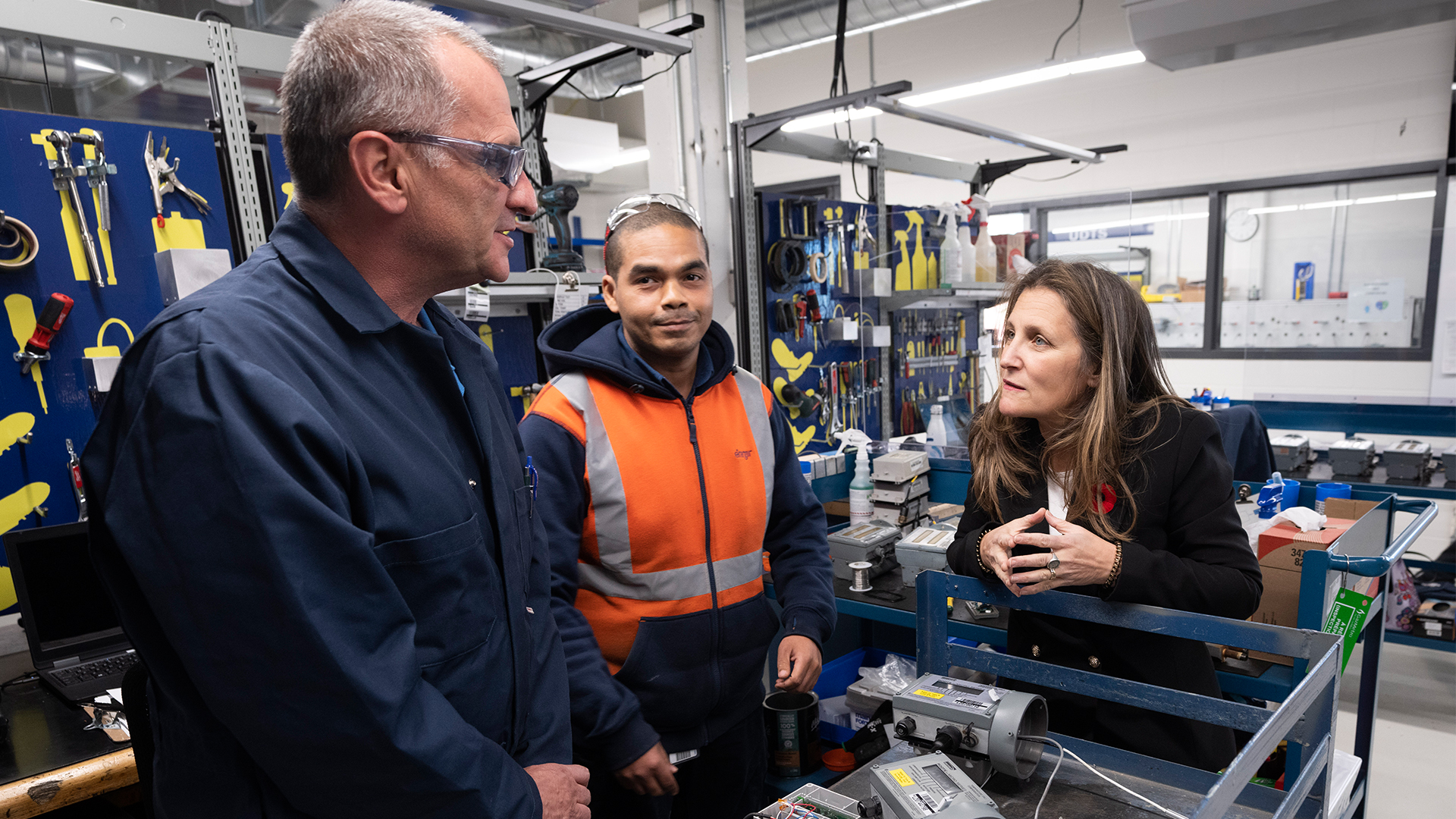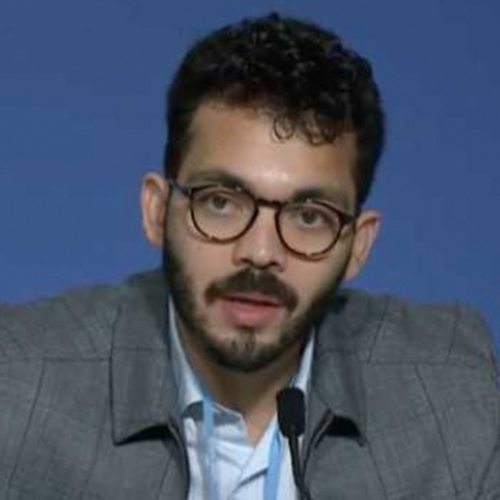
In a recent speech to a prestigious U.S. think tank, Deputy Prime Minister Chrystia Freeland called for greater co-operation amongst democracies to undermine the power of authoritarian regimes. This “Freeland Doctrine” is facing its first test this month at the UN climate summit in Egypt, where Canada must make concrete moves on the climate reparations framework that is at the core of this year’s negotiations if it wants to be taken seriously on her doctrine’s stated goals of undermining authoritarian petro-power and drawing more countries into the democratic camp.
Freeland’s speech can be read a number of different ways, but here we will adopt the most charitable interpretation: that it represents a hard-headed approach to building a better world in tough times.
It opens with the observation that the invasion of Ukraine has killed – once and for all – the dream that the expansion of capitalism inevitably brings peace and democracy in its wake. In an implicit nod to critics who identified corporate power and greed rather than misplaced idealism, as the primary driver of globalization, she acknowledges that expanding trade in the absence of value-based rules had “enriched the plutocrats, but not the people” while strengthening autocratic regimes.
Freeland’s proposed response is built on three pillars.
The first is “friend-shoring,” wherein democracies trade more amongst themselves and limit their exposure to Russia, China and OPEC. Furthermore, Freeland says “friend-shoring must be green. The curse of oil is real, and so is the dependence of many of the world’s democracies on the world’s petro-tyrants.”
A just transition must include the world’s “invisible” workforce
Canada’s powerful oil and gas lobby will no doubt try to use “friend-shoring” as an argument for greater domestic production. Yet if we want to weaken the power of petro-states (and address the existential threat of climate change), the only true solution is to accelerate the transition from fossil fuels to renewable energy at home and abroad.
Anything else is simply moving barrels around, as Russian exports shift from Europe to the “in-between” nations (Freeland’s term) that are the subject of Freeland’s second pillar. In the emerging competition between democracies and autocratic regimes, the alliance of (wealthy) democracies must maintain an openness to the “in-between” nations of the Global South, Freeland argues.
To her credit, Freeland admits that these countries are justifiably suspicious of rich nations’ promises. “Our defence of the rules-based international order and of democracy and human rights has been tempered by self-interest.… History shows that the West is not innocent of imperialism or transactional deals,” she noted.
Nowhere is this admitted hypocrisy more evident than in our response to the climate crisis.
The 1992 UN climate treaty acknowledged that there was a fundamental injustice at the heart of the climate crisis: those who have contributed the least to the buildup of heat-trapping gases in the atmosphere – because they are historically marginalized or live in the Global South – often end up bearing the brunt of the resulting extreme weather and rising seas. The agreed principle of “common but differentiated responsibilities” was reiterated in the Paris Agreement. Yet for 30 years, rich nations have stalled on action to address this inequity.
This year, however, the Egypt UN climate negotiations are centred on the issue of addressing “loss and damages,” which reflects the harm caused by climate change around the world – particularly in climate-vulnerable communities. From the flooding in Pakistan to drought in the Horn of Africa or wildfires in British Columbia, climate impacts are no longer a future global concern but a here-and-now problem for both democratic and authoritarian regimes.
More empty promises will not suffice. If Canada and its allies truly want to maintain credibility with the “in-between” nations, there are three things we need to commit to by the end of this year’s climate summit.
The first is a global UN mechanism for loss and damage funding, supported by a levy on climate polluters. Canada should contribute financially to this fund which should be separate from, and additional to, existing support for mitigation and adaptation.
The second is support for alternative development pathways. Impacted communities are owed reparations in the form of finance, technology and knowledge transfer. At home and abroad, we need to build a new system that prioritizes people and the planet over debt and that reallocates government budgets to protect and support communities when climate-induced disasters happen.
In this new system, the economy and society respect the limits of Earth, our air, water, forests and climate, and promote the resilience of our communities. At the same time, governments should increase transparency, enhance peace and co-operation between countries, and implement policies and mechanisms that hold states and corporations accountable.
The third element is an accelerated plan to phase out fossil fuels at home and abroad – an issue on which Freeland has waffled. The only true path to peace and security is through a rapid transition to low-impact, renewable energy. Canada, whether we like it or not, could also be considered a petro-dependent state, so we can demonstrate true leadership on how to make this transition fairer through support to workers and communities currently dependent on fossil fuels.
If we pursue these three strategies, and put real money on the table, we will not only build our credibility with climate-impacted nations, but also set the terms of engagement for the global response.
The Freeland Doctrine’s third pillar is a turn away from authoritarian regimes, although she acknowledges that even as we limit economic ties, we still “need to work with them to preserve the global commons. That means, first and foremost, continuing to work together on tackling the preeminent threat of climate change.”
Canada has a long history of talking a good game on climate change. At the climate conference in Egypt, It is time to finally walk that talk.










